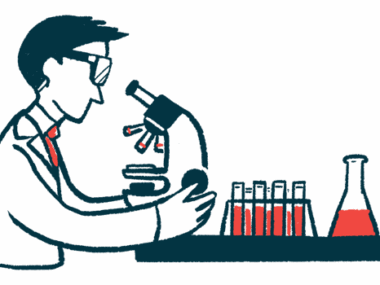Stories being shared in honor of Glioblastoma Awareness Day
Annual observance on July 16 promotes research into rare form of brain cancer
Written by |

July 16 marks Glioblastoma Awareness Day (GBM Day), an annual observance dedicated to raising awareness about the rare and aggressive form of brain cancer, promoting research efforts, and uniting the community in support.
The goal of this yearly event is “to support survivors and their loved ones, to remember those who are no longer with us, and to honor luminaries working toward a cure and better quality of life for those living with this devastating disease,” according to the National Brain Tumor Society (NBTS), which has helped spearhead the event since its first official observance in 2019.
To commemorate this year’s awareness day, the NBTS is asking people affected by glioblastoma to share their stories, either in writing or by video. The NBTS is also urging the glioblastoma community to spread awareness on social media using the hashtag #GBMDay. The society has created a suite of online resources, including sample text and infographics, to help community members spread the word.
“In the weeks leading up to GBM Awareness Day, we share stories, information, and ways to take action and raise awareness about glioblastoma,” NBTS states on its website. “Each year, on or near GBM Day, NBTS shares a new video program highlighting the GBM experience and amplifying the voices of people impacted by glioblastoma.”
Organizations raising funds for research, advocacy
On the day itself, NBTS also hosts a reception with lawmakers to advocate for more research funding and better policies to support people affected by glioblastoma.
Glioblastoma Awareness Day is marked in the U.S. each year on the third Wednesday of July. It was formally passed into law following the death of U.S. Sen. John McCain, who died of glioblastoma in 2018.
Glioblastoma is a type of glioma that develops when astrocytes — star-shaped cells that normally help to support nerve function — start to grow out of control in the brain. Glioblastomas mainly affect adults, though in rare cases they can develop in children. These cancers are usually very fast-growing and difficult to treat. According to the Glioblastoma Research Organization, about a third of glioblastoma patients survive for a year beyond their diagnosis, and fewer than one in 10 are still alive five years after their diagnosis.
The NBTS notes that about 13,000 people in the U.S. alone will be diagnosed with glioblastoma this year, and about 10,000 will die from the disease. The NBTS, along with the Glioblastoma Research Organization, are currently fundraising to help support research into new glioblastoma treatments and advocate for better policies to support people affected by this disease.




